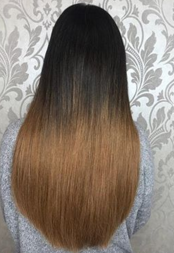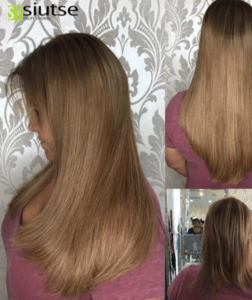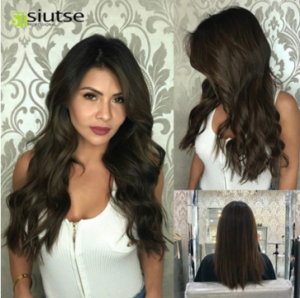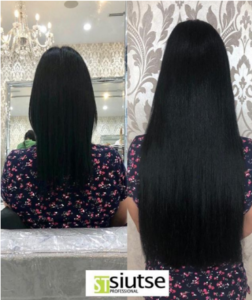The scalp

The scalp is the skin that covers the skull of the human being and that has hair.1 It is different from the other skins for the reason that under this skin there is a very vascularized structure, formed by a huge branching of blood vessels and that It is responsible for the large hemorrhages that cause the wounds that occur here.
This fine, fragile and highly vascularized tissue is called aponeurotic galea. The wounds in this place must necessarily be sutured to avoid bruising.
The outermost of its five layers is in which dandruff occurs.
Anatomy
The scalp is made up of skin (usually, with hair) and subcutaneous tissue. It covers the shell from the upper nuchal lines of the occipital bone to the supraorbital edges of the frontal bone. The scalp extends laterally over the temporal facia to the zygomatic arches. Anatomically, the scalp is considered a unique structure, independent of the skin. It is formed by four layers that are:
Skin: the thickness of the epidermis and dermis varies between 3 and 8 mm.
Epicranium and aponeurotic galea: the occipal and frontal muscles are connected at the vertex of the skull by the so-called aponeurotic galea, which constitutes the strongest and strongest scalp blade and is also responsible for the low possibility of distension.
Subepicranium (subgaleal plane or Merkel space): It is the space between the galea and the epicranium occupied by a thin and straight tissue with few blood vessels. Its laxity allows the mobility of the upper layers.
Pericranial: It is the deep stratum, intimately adhered to the outer table of the skull.
Hair
It is a keratinized filament that emerges from the hair follicle. It is formed by dead cells due to the formation of keratin. Its growth is due to the rapid production of cells inside the matrix. All skin is hairy, except that of the palms of the hands and the soles of the feet.
Hair follicle
Main article: Hair follicle
It is an epidermal bag, at the base of which is the bulb, likewise at the base is the papilla. This follicle has two layers, epidermal and dermal, the same that is well vascularized and innervated. Also in the neck of the hair follicle the hair muscle of the scalp is inserted whose function is to raise the hair.
Irrigation
The main circulation is based on the external carotid artery through three branches.
Superficial temporal artery
Occipital artery
Posterior atrial artery.
The frontal area of the scalp is irrigated by two other arteries, dependent on the internal carotid that are the supratrochlear artery, and supraorbital.
The venous irrigation that accompanies the arterial roots empties into the external jugular, and the frontal and supraorbital veins drain into the ophthalmic veins and then into the cavernous sinus.
The frontal sensory innervation, 2 is provided by the branches of the internal frontal nerve and two branches of the supraorbital nerve that come from the ophthalmic middle nerve, trigeminal branch. The malar nerve innervates the temporal zone by the temporal zygomatic branch, also of the trigeminal. The trigeminal branch auriculotemporal nerve innervates the parietal zone.Finally there is the major occipital nerve that is the posterior root of the second Cervical root of the brachial plexus that provides the motor innervation of the deep neck and sensory muscles over the area occipital. The latter gives rise to the well-known Arnold neuralgia. All nerves of the scalp go through the dense area of the superficial facia, between the shell and the overlying teguments.
Best hair salon in Miami
Hair Extensions in Miami
Hair Extensions Miami
Miami Hair Extensions
Best Hair Extensions Salon in Miami
Hair Extensions Salon in Miami
Store Locations
Coral Gables,Miami: 210 Aragón Av.Coral Gables 33134 Fl
Coral Gables,Miami:
(305) 456-2989





